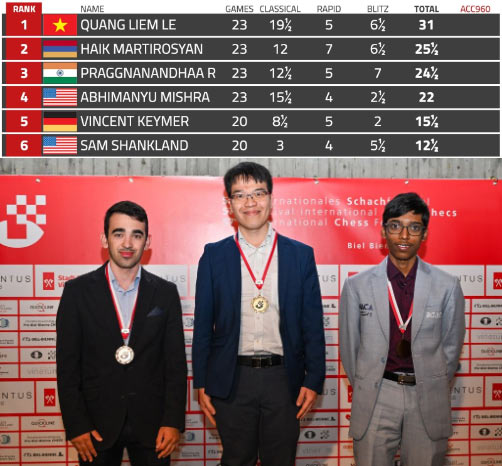The annual Biel Chess Festival, a long-standing and respected event on the international chess calendar, is set to challenge participants once again with its distinctive approach to competitive play. Stepping away from conventional single-format tournaments, Biel is celebrated for its unique “Chess Triathlon,” a rigorous test that demands versatility and mastery across multiple domains of chess.
This unconventional structure requires players to excel not just in one specific time control, but in the strategic depth of Classical chess, the quick calculations of Rapid, and the sharp intuition of Blitz. It`s a format designed to identify the most complete chess player, capable of performing under various pressures and time constraints.
The Triathlon Explained: Three Formats, One Champion
The heart of the Biel Festival lies in its three-stage competition, mirroring the endurance and varied skills needed for a physical triathlon. Players navigate through phases of:
- Classical Chess: The traditional form, demanding deep calculation, strategic planning, and physical endurance over long durations.
- Rapid Chess: A faster pace requiring quicker decision-making and effective time management, bridging the gap between classical and blitz.
- Blitz Chess: The ultimate test of speed and sharp tactics, where intuition and quick reflexes are paramount.
The overall winner is determined by a cumulative points system that weights performance across these different formats. This weighting reflects the differing demands of each time control, ensuring that consistency and adaptability are highly rewarded. While the exact points per win and draw vary between formats, Classical games, with their inherent complexity and duration, naturally carry the highest point values, followed by Rapid, and then Blitz.
Structure and Scoring Insights
The festival typically features invitational tournaments, such as the Masters and Challengers sections, each comprising a select group of players. The qualification phase sees players competing in round-robin tournaments across the three time controls. A notable technical detail includes reversed colors for the Rapid portion relative to the Classical games, adding a layer of tactical consideration.
Points are accumulated throughout these rounds:
- Classical: 4 points for a win, 1.5 for a draw, 0 for a loss.
- Rapid: 2 points for a win, 1 for a draw, 0 for a loss.
- Blitz: 1 point for a win, 0.5 for a draw, 0 for a loss.
Following the qualification phase, the top-performing players may advance to a final phase, often involving return matches in the Classical format. Points earned in qualification carry over, making every game significant from the outset.
The Freestyle Tiebreaker
Adding another layer of unique challenge, the Biel Festival employs Freestyle Chess, commonly known as Chess960 or Fischer Random, as the tiebreaker. This format randomizes the starting position of the pieces (within certain constraints), effectively neutralizing pre-game opening preparation. Players must rely on their pure chess understanding and ability to calculate from unfamiliar positions, providing a truly impartial method to resolve ties and crowning a champion who is not just well-prepared, but genuinely adaptable.
The Biel Chess Festival format continues to innovate, offering a compelling spectacle for chess enthusiasts and a formidable challenge for the world`s top players. It`s a tournament where strategic depth meets lightning speed, all under the umbrella of a points system that rewards the complete chess athlete.

